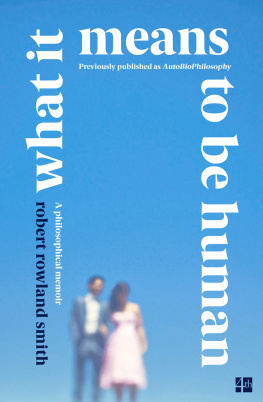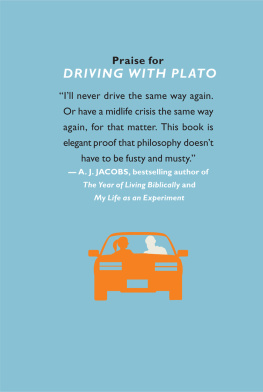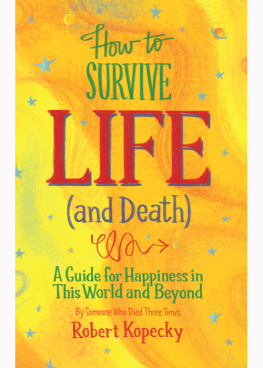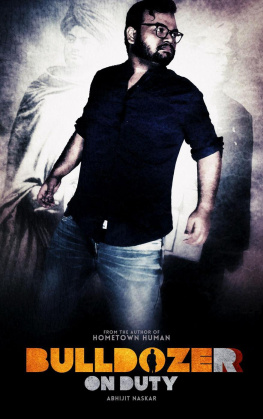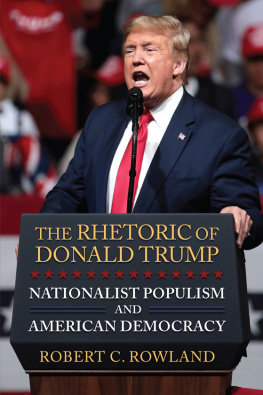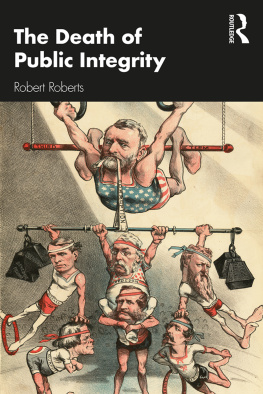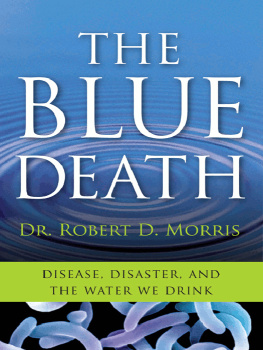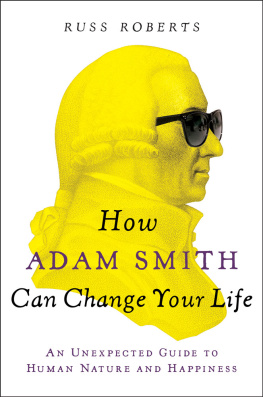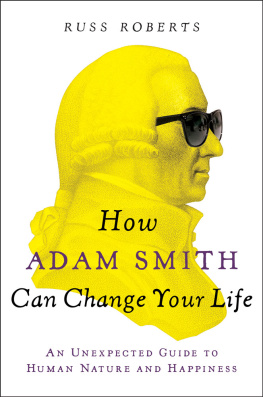
4th Estate
An imprint of HarperCollinsPublishers
1 London Bridge Street
London SE1 9GF
www.4thEstate.co.uk
Previously published in Great Britain by 4th Estate as AutoBioPhilosophy in 2018
This 4th Estate eBook edition 2019
Copyright Robert Rowland Smith Ltd 2018
Cover design by Heike Schssler
Cover images plainpicture/our labor of love
The right of Robert Rowland Smith to be identified as the author of this work has been asserted by him in accordance with the Copyright, Design and Patents Act 1988
This book is based on the authors experiences. Some names, identifying characteristics, dialogue and details have been changed, reconstructed or fictionalised.
A catalogue record for this book is available from the British Library
All rights reserved under International and Pan-American Copyright Conventions. By payment of the required fees, you have been granted the non-exclusive, non-transferable right to access and read the text of this e-book on-screen. No part of this text may be reproduced, transmitted, down-loaded, decompiled, reverse engineered, or stored in or introduced into any information storage and retrieval system, in any form or by any means, whether electronic or mechanical, now known or hereinafter invented, without the express written permission of HarperCollins.
Source ISBN: 9780008218522
Ebook Edition 2019 ISBN: 9780008218485
Version: 2019-04-18
Contents
When such a spacious mirrors set before him
He needs must see himself.
William Shakespeare
What is it to be human? That is the question. This book offers nine answers, each mapping on to one of the nine chapters. Being human means:
Dealing with our fate
Standing in the flow of time
Needing a purpose
Living amongst others
Making mistakes
Belonging to groups
Facing mortality
Not knowing it all
Looking for love
Needless to say, there are far more potential answers than those on the above list. The nine offered here correspond broadly to the nine phases of my own life, from my origins to the present day. For I have used my own experience as the source material for answering the question of what it is to be human. To arrive at the general, I go via the specific.
What results is an autobiographical narrative that serves up philosophical insights along the way. But I should stress that the narrative has many gaps. It is not supposed to be a complete life story. My criterion for selecting content was how fertile it appeared to be from a philosophic point of view. If people or periods are represented unevenly, that is why. For example, because of circumstances unique to him, my father Colin plays a more leading role in the text than does my mother. In real life, she is no less important. This book is dedicated to them both.
In the vast majority of cases, I have changed peoples names for the sake of anonymity. When talking about individuals, disguised or otherwise, I have been as even-handed as I can be. I recognise that judgements are hard to keep out of ones descriptions of other people, but the agenda here is philosophical rather than personal. Besides, it is the flaws in my own character that will be the most conspicuous by far.
The specific weight of the soul is equal to the weight of what has been dared.
Bert Hellinger
My formula for greatness in a human being is amor fati: that one wants nothing to be different, not forward, not backward, not in all eternity. Not merely bear what is necessary, still less conceal it but love it.
Friedrich Nietzsche
At the brow of a hill in Norwood, south London, stands an imposing red-brick building. It is called The British Home and Hospital for Incurables. The word incurable sounds strikingly Victorian, and indeed it was during Victorias reign, in 1894, that the building was officially opened. Just as striking is the words directness. Incurable. The people who come here arent going to get better, it says. We might mock the Victorians for their stiff upper lips and prudery, but in their choice of this word, they showed a frankness that we would balk at today.
Among the seventy-odd residents of this Victorian terminus is my father, Colin Rowland Smith. His particular incurability is multiple sclerosis. It is his story that will provide the framework for this first chapter.
The reasons for choosing my father are threefold. First, he represents the origin, along with my mother, of my own life. He is therefore the starting point of my story, which unfolds in the chapters ahead.
The second reason is that, by bringing a real person into the picture, we can gain some initial purchase on what a human being might actually be. For a human being is always a particular human being, not some vague notion of a human being. I often think of an article by the British novelist Zadie Smith, reflecting on the process of writing. She talks about how you always start out with the ambition of penning the perfect book. From the moment you write the first word, however, it becomes this book and no other.
Behind the idea lies, I suppose, a simple logic. That first word limits the range of options for the second word, the second for the third, and so on, until you have a paragraph which determines the next paragraph which determines the next, until you have a chapter. Then each chapter conditions the chapter after it, until the whole thing is done. A book has to follow an internal sequence to reveal its own identity. By definition, this identity will differ from the identity of other books, and so become unique.
As the book, so the human being. None of us has an ideal, perfect or general self. We have the self that we have, with its irreducible specificity, its one-of-a-kind combination of history, biology and character. Whats more, our choices narrow as we grow older, making us even less likely to deviate from who we are. The golden thread that leads from the beginning to the end of our lives only becomes finer along the way. So that is why in this chapter Im looking at a human being in all his book-like individuality.
The third and most important reason for choosing my father is that his story gives us a first answer to the question that will serve as a prompt to all the chapters ahead. The question is: What does it mean to be a human being? Each chapter will offer a different response. In the case of my father, that response goes something like this: Being human means dealing with our fate.
My fathers fate was a heavy one. It wasnt just the MS with which he had to contend. Yet how he contended is what matters. It matters for us all. Whether our fate is lucky or unlucky, we are dealt a hand. We might be born into poverty or affluence, good or bad health, peace or war but the playing of that hand is up to us. And so it is that tension between being determined by our circumstances and determining ourselves which is an essential part of being human.
Mutiny in the body
The sclerosis in multiple sclerosis or MS refers to lesions resulting from damage done to the sheaths encasing the nerve cells in the brain and spinal cord. This damage affects physical coordination, speech, ability to concentrate, memory and more. Maybe all diseases are strange, travelling as covertly as spies and silently infiltrating our systems. What makes MS especially mysterious is that it seems to result from a mutiny in the autoimmune system. Rather than do its job of protecting the body, the autoimmune system revolts and attacks. But not only that:

